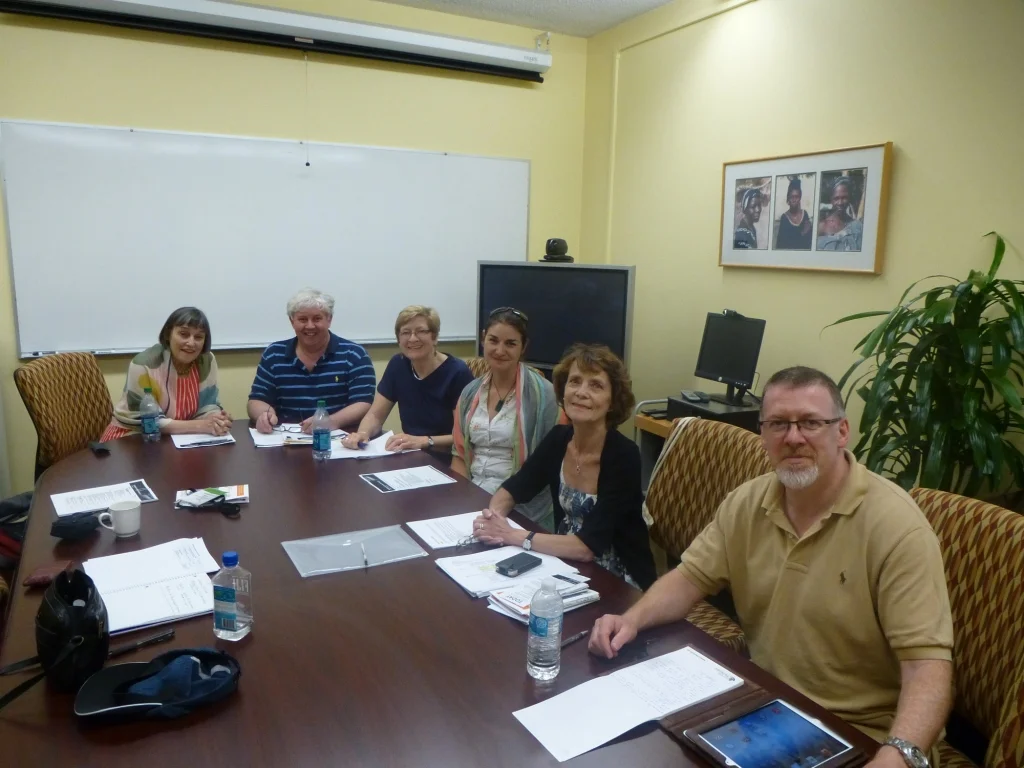How was the group set up?
The idea for the International Network for Social Workers in Acquired Brain Injury (INSWABI) originated in 2004 from contacts between two national social work special interest groups in acquired brain injury (ABI) – Social Workers in Brain Injury Group (SWIBI), Australia Brain Injury Social Work Group (BISWG), United Kingdom. Both groups strive to raise the standards of social work practice and other relevant specialist services by the person-centred support of people with a brain injury, their families and carers, and by contributing to the national debate on specialist provisions for this increasing and complex population.
When was it launched?
The inaugural meeting of INSWABI took place at the 5th International Conference on Social Work in Health and Mental Health, Hong Kong 2006.
What is its Mission?
Through international collaboration, to advance the social work contribution to the field of acquired brain injury (ABI), for the benefit of people with ABI, their families, significant others and broader support networks.
How has it developed?
Key elements that have facilitated the continued growth and success of the network have included:
◆ face-to-face exchanges between INSWABI members
◆ the underpinning of national practice interest groups affiliated with their national social work organisations
◆ the focus on undertaking projects that are relevant to practitioners at the service delivery coal-face
◆ the collaboration between practitioners and academics/ researchers; and
◆ electronic communication using e-mail and website.
Reflecting the success of these strategies, INSWABI now has over 90 members from 8 countries. Full membership is specifically for social workers and the great majority of the members are in this category. It is a practitioner-driven network, with the great majority of members practicing clinicians.
How does it operate?
INSWABI is primarily a virtual group and use of e-mail and websites through the internet has made this possible. Typically social workers in ABI work can be professionally isolated – they may be lone workers in healthcare settings or in community or multidisciplinary teams. The value of a virtual group has huge potential in helping to provide instant support and information that such situations demand.
Strategies include: Biannual progress reports to maintain communication across the network, with:
◆ contributions from members
◆ inclusion of member profiles
◆ updates on developments in current practice and research
◆ progress reports on INSWABI projects
◆ and news of upcoming events.
The Progress reports encourage debate about topical issues and profiles aspects of the work of different members in different countries.
E-mail consultation – INSWABI members who need to consult with colleagues can communicate their request on the network, allowing members to share experiences, advice, and ideas.
Website – INSWABI is grateful to BISWG for space on their website. INSWABI also thanks Stewarts Law LLP for their sponsorship for this facility.
Working together in international collaboration on joint projects – subgroups of INSWABI members will work together to complete projects identified by the network as a whole as priorities to enhance Social Work practice in ABI
What are the benefits and achievements of INSWABI?
INSWABI has provided support and a focal point by the:
◆ Collaboration on research and publications.
◆ Enhancement of resource and information sharing.
◆ Provision of opportunity for observer ship and job exchanges.
◆ Reduction of professional isolation.
◆ Development of ABI/social work-specific training opportunities and practice competencies.
◆ Building of awareness of social workers role in ABI care in the national and international context.
◆ Developing a Psychosocial Assessment Framework for use by practitioners
◆ Reconvening at the 10th International Social Work Conference in Health and Mental Health, Melbourne, Australia 2021. INSWABI members will ensure that there is a strong stream of Social Work in ABI as a part of the conference.
◆ Ongoing updates of new resources and presentations on our website.
◆ Ongoing peer consultation for INSWABI Members.
INSWABI has inspired research, practice development and information across borders and across the academic and practice divides. This has included:
◆ Development of a new Family Outcome Measure in the field of TBI
◆ Undertaking the first structured review of the existing social work literature in the field of ABI
◆ Poster at the Toronto ABI Network Conference


